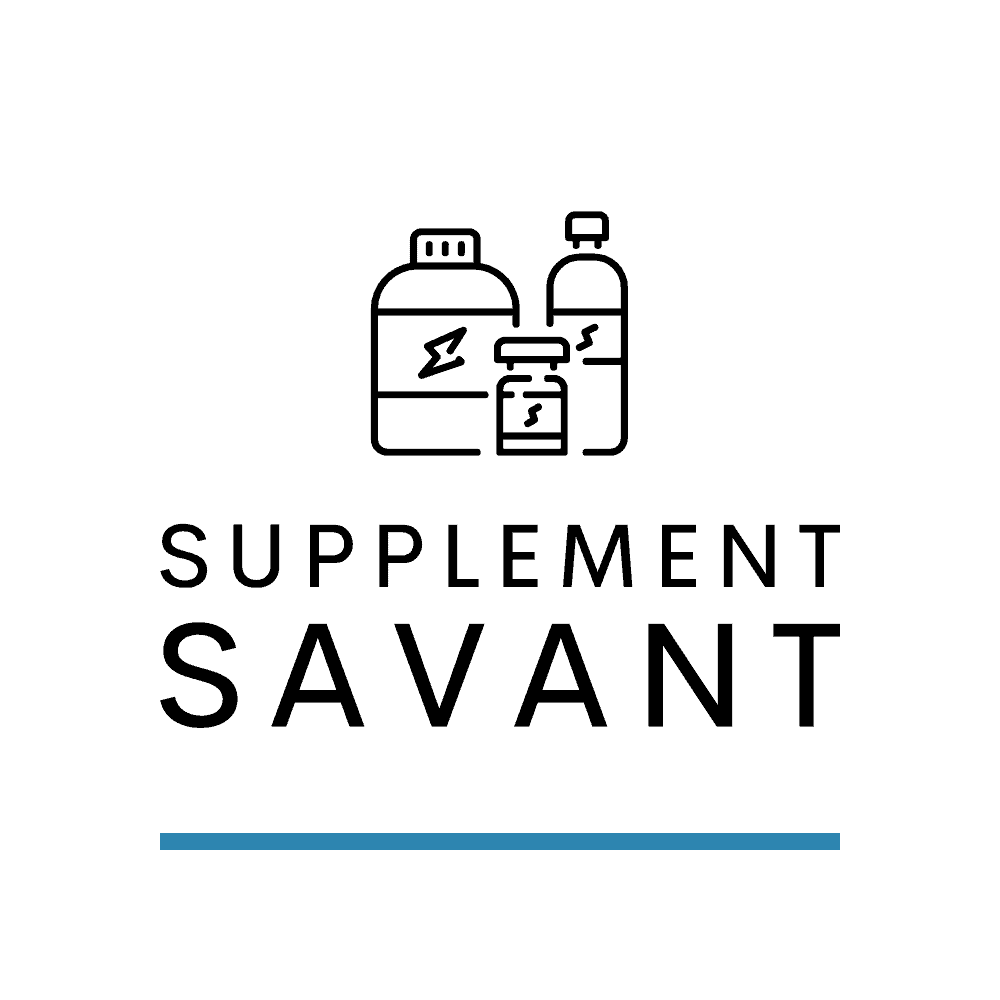Wondering what is ashwagandha? Often referred to as Indian ginseng or winter cherry, ashwagandha is a revered herb in the ancient Indian system of medicine, Ayurveda. Known scientifically as Withania somnifera, this adaptogen has been utilized for centuries to help bolster the body’s resilience to physiological and psychological stress. Its evergreen shrub origins trace back to Asia and Africa, but the reach of its health benefits spans across the globe. You might find yourself reaching for this herb for its potential to calm the brain, reduce inflammation, and improve immunity.
Table of Contents

In exploring ashwagandha, you’ll uncover a multitude of uses ranging from managing insomnia and anxiety to enhancing athletic performance. However, as with any supplement, it’s crucial to be aware of possible side effects and interactions with other medications you might be taking. While ashwagandha is celebrated for its therapeutic properties, understanding the right dosing is key to maximizing its benefits. The aim here is to offer you comprehensive insights into this powerful herb, equipping you with the knowledge to make informed decisions about your health and wellness.
Historical Significance

Ashwagandha, also known as Indian ginseng or winter cherry, packs a historical punch that’s as potent as its restorative properties. Did you know that this humble herb is not just a plant but a time-honored treasure in the world of wellness?
Ayurvedic Medicine
Did you stumble upon Ashwagandha on your journey to holistic health? Withania somnifera, its scientific name, has been a cornerstone in Ayurvedic medicine for over 3,000 years. In this traditional Indian system of healing, the root and berry of ashwagandha are used to create natural remedies.
- Restorative Benefits: Ashwagandha is renowned for its restorative and rejuvenating effects, making it a go-to option for combating stress and fatigue.
- Conditions Treated: Its use spans a variety of ailments, from reducing inflammation and fever to easing respiratory infections.
According to ancient texts, ashwagandha supported not just physical wellness but also mental health, tackling stress and mental fatigue. Its adaptogenic qualities—helping your body manage stress—make it a true gem in the ancient medical arsenal.
Cultural Importance
Beyond its health benefits, did you realize ashwagandha also resonates deeply with Indian culture? In historical narratives, it’s said to have been used as an “elixir of life” in Hindu mythology, symbolizing longevity and vitality.
- Mythology and Literature: It appears in works like the Bhagavad Gita, highlighting its significance beyond health.
- Symbolism: Often representing strength and vigor, ashwagandha’s influence extends into spiritual and daily life practices across generations.
This herb isn’t just a dietary supplement; it’s a cultural icon. Embraced for centuries, it continues to be a symbol of natural wellness and an enduring link to India’s rich heritage.
Benefits and Uses

Ashwagandha is more than just a supplement; it’s a versatile herb with a myriad of benefits that can positively impact various areas of your health. From managing stress to boosting your immune system, let’s explore how this ancient remedy can be a modern-day ally for your well-being.
Stress and Anxiety Management
Feeling wound up or on edge? Ashwagandha may be a natural way to calm your nerves. It’s known to help lower cortisol levels, which is your body’s main stress hormone. Many find that regular supplementation can lead to a more balanced stress response and an overall improvement in mood.
Cognitive Function and Memory
Want to keep your mind sharp? Ashwagandha could be the booster your brain needs. Studies suggest it helps improve cognitive function and memory. In particular, it might enhance executive function, processing speed, and attention.
Strength and Performance
If you’re looking to amp up your workout, ashwagandha might just be your gym buddy in herb form. It’s been linked to increased muscle mass and strength and may even help enhance endurance and stamina. Less muscle damage and inflammation means you could bounce back faster post-workout.
Sleep and Insomnia
Sleepless nights? Ashwagandha has been traditionally used to induce a state of calm and it may help improve the quality and duration of sleep. So if you’re tossing and turning, considering this herb might be a step towards restful nights.
Immune System Boost
Keeping your body’s defenses strong is crucial, and ashwagandha might aid in boosting your immune system. It has properties that may reduce inflammation and help fend off oxidative stress. That means it could be especially beneficial during times of stress when your immune response could use that extra support.
Remember, while ashwagandha is a potent herb with various benefits for different facets of health and performance, it’s important to consult with a healthcare professional before starting any new supplement regime.
Considerations for Specific Populations

When eyeing the benefits of ashwagandha, it’s crucial to consider that it’s not suitable for everyone. Let’s talk about two specific groups that need to pay extra attention: those who are pregnant or breastfeeding, and seniors with health concerns.
Pregnancy and Breastfeeding
Did you know that when you’re pregnant or breastfeeding, certain herbs and supplements should be approached with caution? Ashwagandha falls into this category. Here’s the scoop:
- Pregnancy: Steer clear of ashwagandha during pregnancy, as it may have abortifacient properties, meaning it could increase the risk of miscarriage. Plus, it might interfere with hormones, which is the last thing you want when you’re expecting a little one.
- Breastfeeding: If you’re nursing, it’s wise to avoid ashwagandha. Although research here is not as abundant, it’s better to play it safe since it could affect hormonal balances, and little is known about its effects on infants.
Senior Health Concerns
Aging gracefully means being mindful of what you put into your body:
- General Aging: As you get older, your body handles supplements differently. Ashwagandha can be promising due to its potential anti-inflammatory effects, but it’s a balancing act, especially if you have existing health conditions.
- Prostate Health: For the gentlemen, there’s research that suggests a relationship between ashwagandha and prostate cancer cells, although findings are preliminary. So, if prostate health is on your radar, discuss ashwagandha with your doctor first.
Remember, the golden rule of thumb is to consult with your healthcare provider before adding ashwagandha to your routine.
Usage Guidelines

Understanding the appropriate dosage of ashwagandha is essential for harnessing its benefits effectively. Whether you’re using it for stress relief or enhancing cognitive function, it’s crucial to know how much to take and the considerations surrounding the various forms of this supplement.
Dosing Instructions
The optimal dose of ashwagandha might differ based on personal health goals, individual body responses, and the type of supplement. However, here are some general guidelines to get you started:
- Stress and Anxiety: Start with 250-500 mg of ashwagandha extract daily and use consistently for at least 1 month.
- Athletic Performance: Try 500-1000 mg of ashwagandha extract daily for a duration of 8 weeks.
- Memory and Cognition: 300-600 mg of ashwagandha extract per day is recommended, over a period of 8-12 weeks.
- Sexual and Reproductive Health: 5 grams of ashwagandha powder daily could be beneficial, spanning a course of 90 days.
It’s generally best to begin with a lower dose and gradually work your way up to the desired level. Make sure to adhere to the labeling instructions or consult with a healthcare provider to tailor the dose that’s right for you.
Forms and Types of Supplements
Ashwagandha comes in a variety of forms, each suited to different needs and preferences:
- Capsules: A convenient, pre-measured dose; ideal for those who value ease and simplicity.
- Powder: Offers the flexibility to adjust doses and can be mixed into foods or beverages.
- Medications: In some cases, ashwagandha is included as an ingredient in prescription or over-the-counter medicines; always follow dosing instructions from your healthcare provider or the manufacturer.
When selecting your ashwagandha supplement, consider the type that fits your lifestyle and how it might impact your dosing routine. The combination of the right form and the correct dose is key to achieving the desired effects.
Side Effects and Interactions

When considering ashwagandha, it’s important to be aware of potential side effects and interactions with drugs and health conditions. Let’s break down what you might expect and what you should watch out for.
Common Adverse Reactions
While ashwagandha is generally considered safe for most people, some common side effects may occur. These include:
- Drowsiness: Feeling unusually sleepy or tired after consumption.
- Upset stomach: Experiencing discomfort or pain in the stomach area.
- Diarrhea: Having loose, watery bowel movements that may occur frequently.
- Vomiting: Feeling nauseous and ejecting the contents of the stomach.
Remember, your body’s reaction can vary, and if you experience these or other adverse effects, consulting a healthcare professional is a wise step.
Drug and Health Condition Interactions
Ashwagandha may interact with various medications and supplements, and if you’re taking any, it’s crucial to have a chat with your doctor before starting ashwagandha.
Here are some of the potential interactions to be aware of:
- Sedatives: If you’re on medications like benzodiazepines, barbiturates, or opioids, ashwagandha might boost their sedative effects, potentially leading to increased drowsiness or even respiratory depression.
- Antidepressants: Those taking SSRIs should note that ashwagandha may amplify the drug’s effects, upping the risk for serotonin syndrome.
- Immunosuppressants: Drugs like cyclosporine help prevent organ rejection post-transplant, but ashwagandha could lessen their effectiveness, raising the risk of infection or rejection.
- Thyroid Hormone Medications: Supplements like ashwagandha could affect thyroid hormone levels, maybe requiring an adjustment in your medication dosage.
- Supplements Causing Sleepiness: Taken any valerian, kava, or St. John’s wort lately? Combine those with ashwagandha, and you might find yourself extra sleepy.
For those with certain health conditions, particularly liver issues, caution is advised, as ashwagandha could exacerbate the problem. Always consult your healthcare provider before adding a new supplement to your routine, especially before or after surgery.
Frequently Asked Questions

Ashwagandha, a powerful herb with a storied history in traditional medicine, has sparked numerous queries. Let’s dive into some of the most common questions you might have about this intriguing natural remedy.
Can Ashwagandha aid in weight management and if so, how?
You might find Ashwagandha interesting if you’re looking at natural ways to manage your weight. It’s thought to help by reducing stress and stress-related cravings due to its adaptogenic properties, potentially leading to weight loss when combined with a healthy diet and exercise.
Is daily intake of Ashwagandha safe, and what are the guidelines?
Yes, taking Ashwagandha daily can be safe for most people. It’s usually recommended to follow the dosage on the supplement label or consult a healthcare professional. Consistency and moderation are key, so sticking to prescribed amounts is crucial for safety and effectiveness.
What is the Best time to take ashwagandha?
The best time to take Ashwagandha can depend on your goals. For improved sleep, taking it before bed may be beneficial. If you’re aiming for stress reduction, splitting the dosage between morning and evening might work best. Remember to check the supplement instructions or consult with a healthcare provider for personalized advice.
How long does it take Ashwagandha to work?
Patience is a virtue here, as Ashwagandha isn’t a quick fix. You may start noticing effects within a few days to a couple of weeks. However, for the full benefits, consistent use over at least a month or two is often recommended.
Is Ashwagandha safe for everyone?
While Ashwagandha is safe for many, it’s not for everyone. Pregnant or breastfeeding women, and those with certain medical conditions, especially auto-immune diseases, should avoid it. Always check with your healthcare provider before adding any supplement to your routine, especially if you have underlying health concerns or take other medications.
